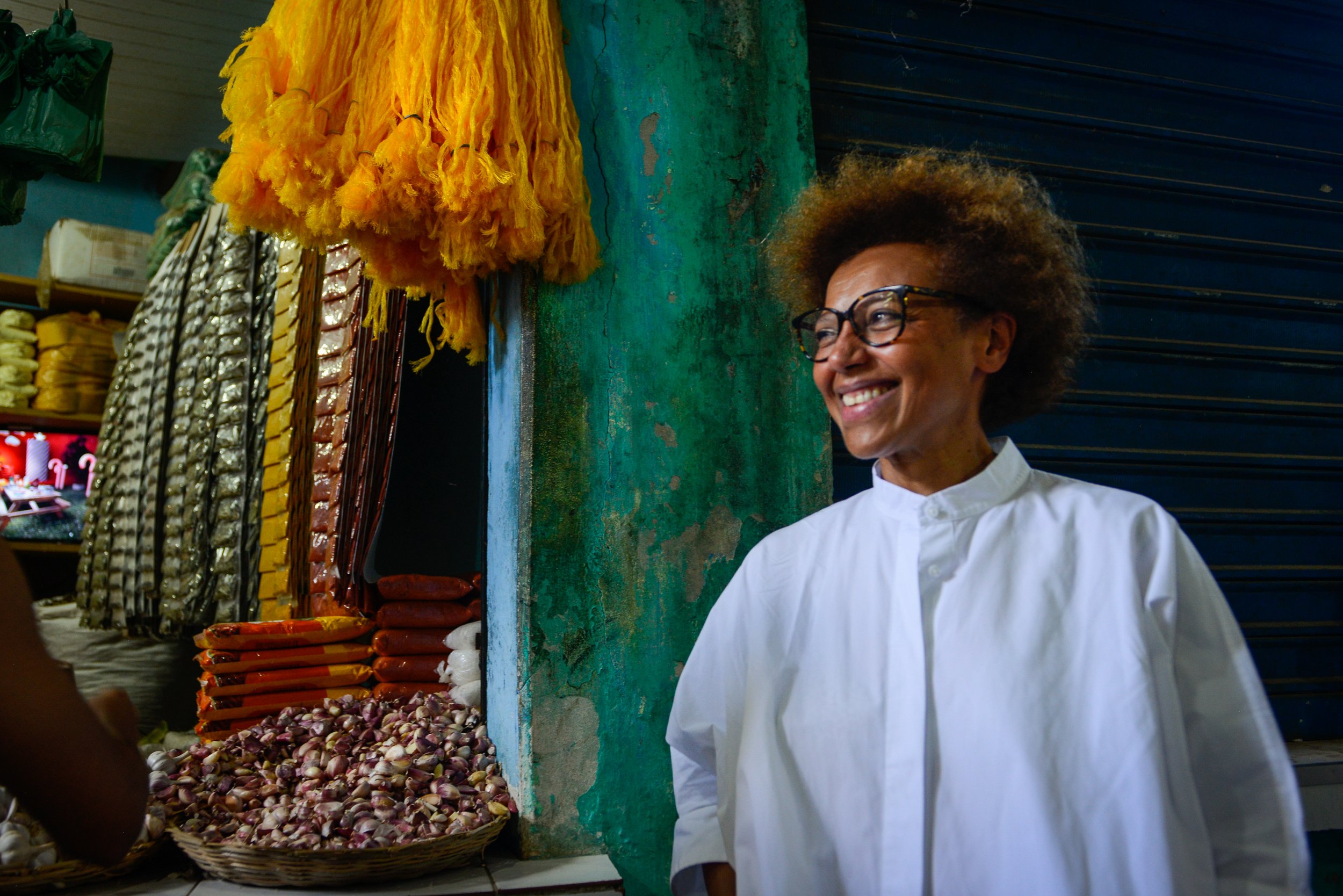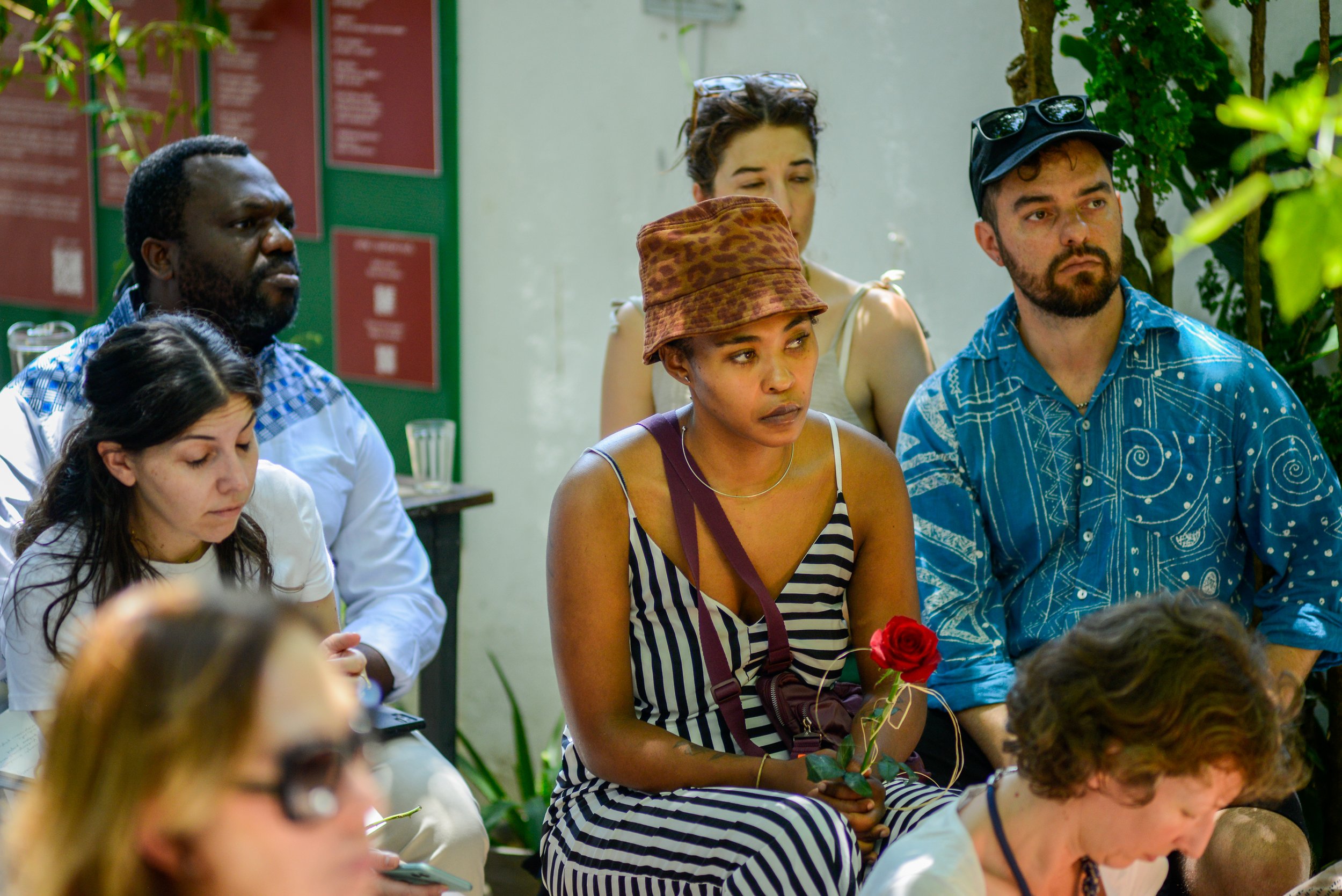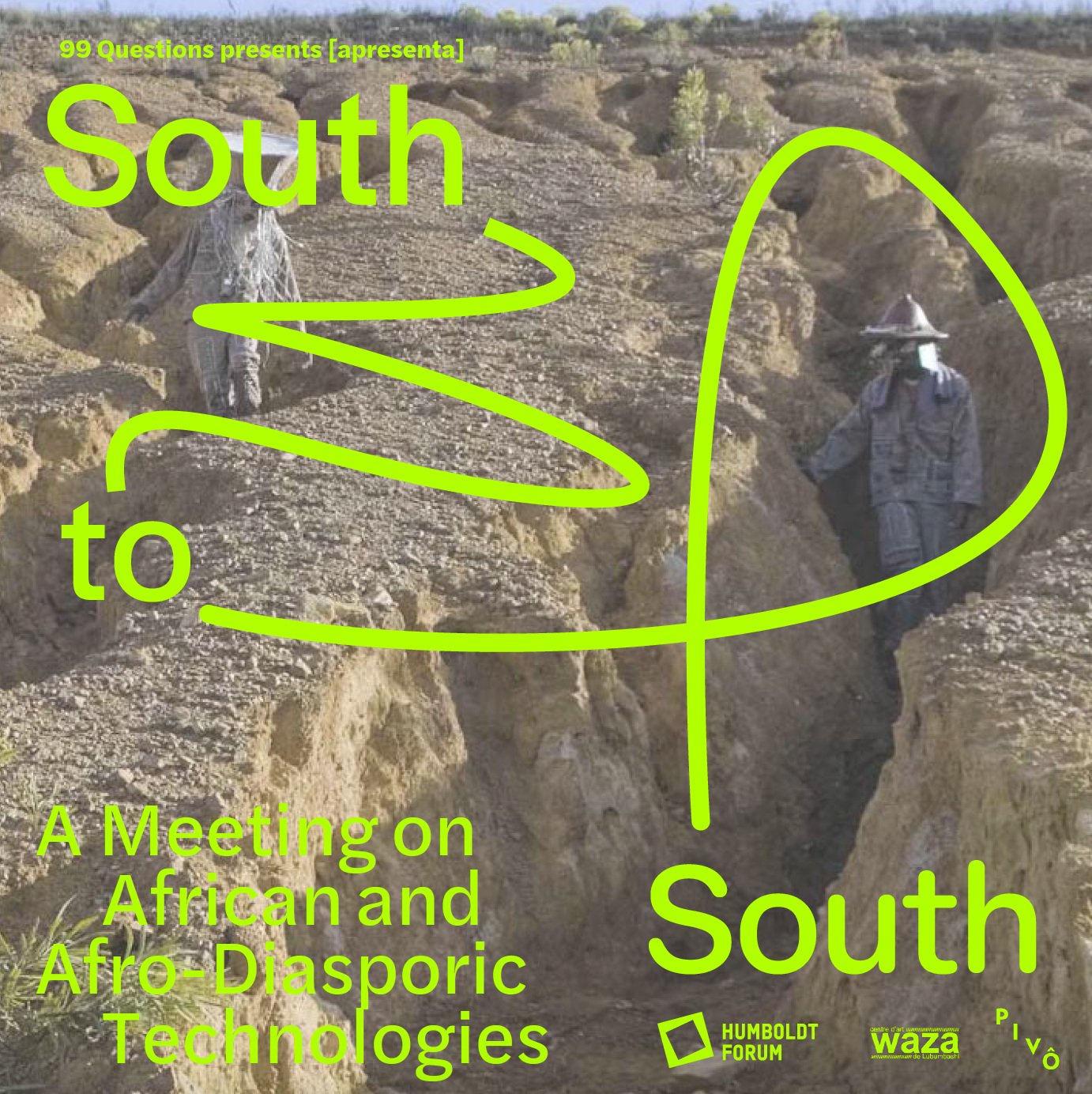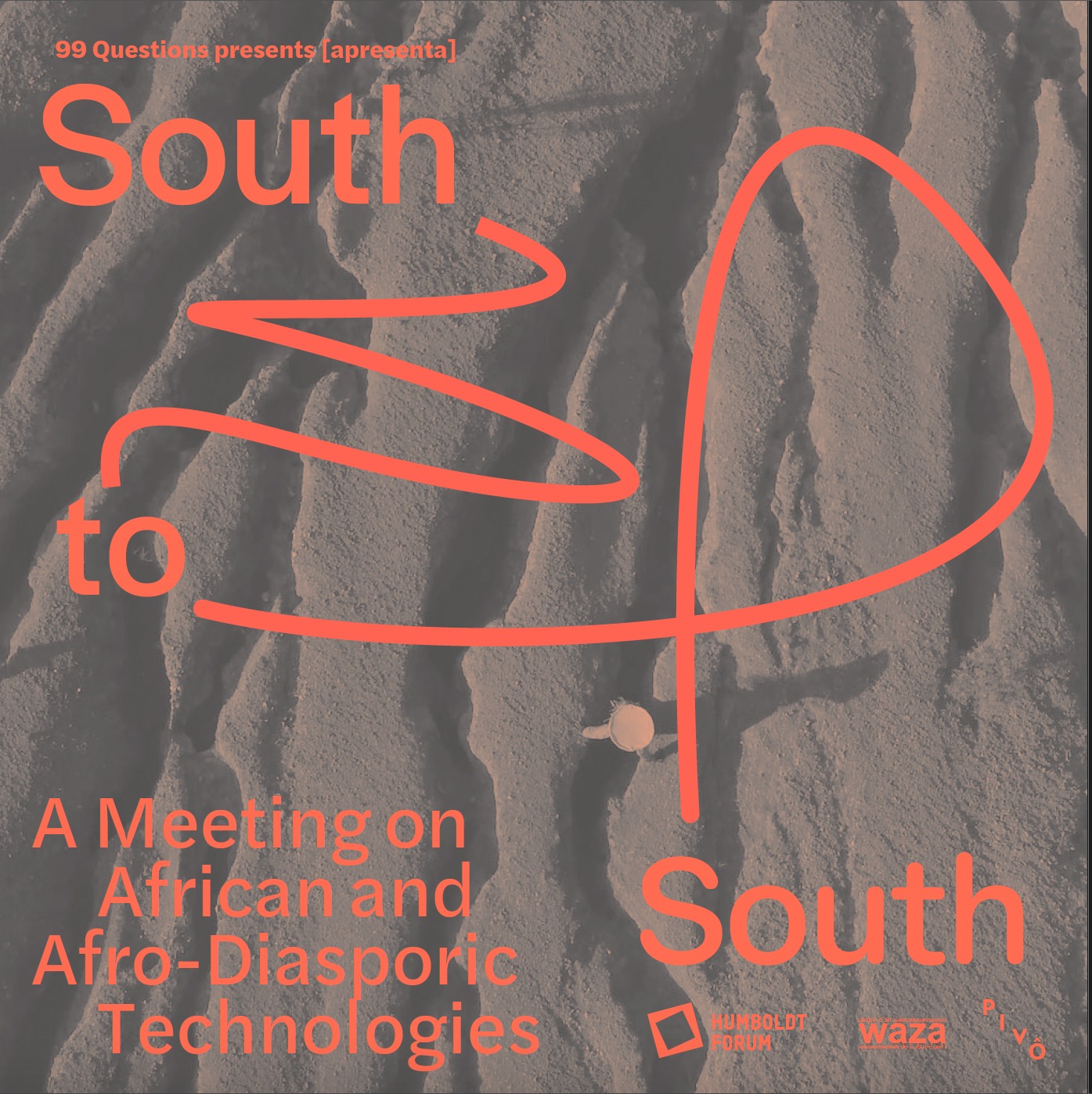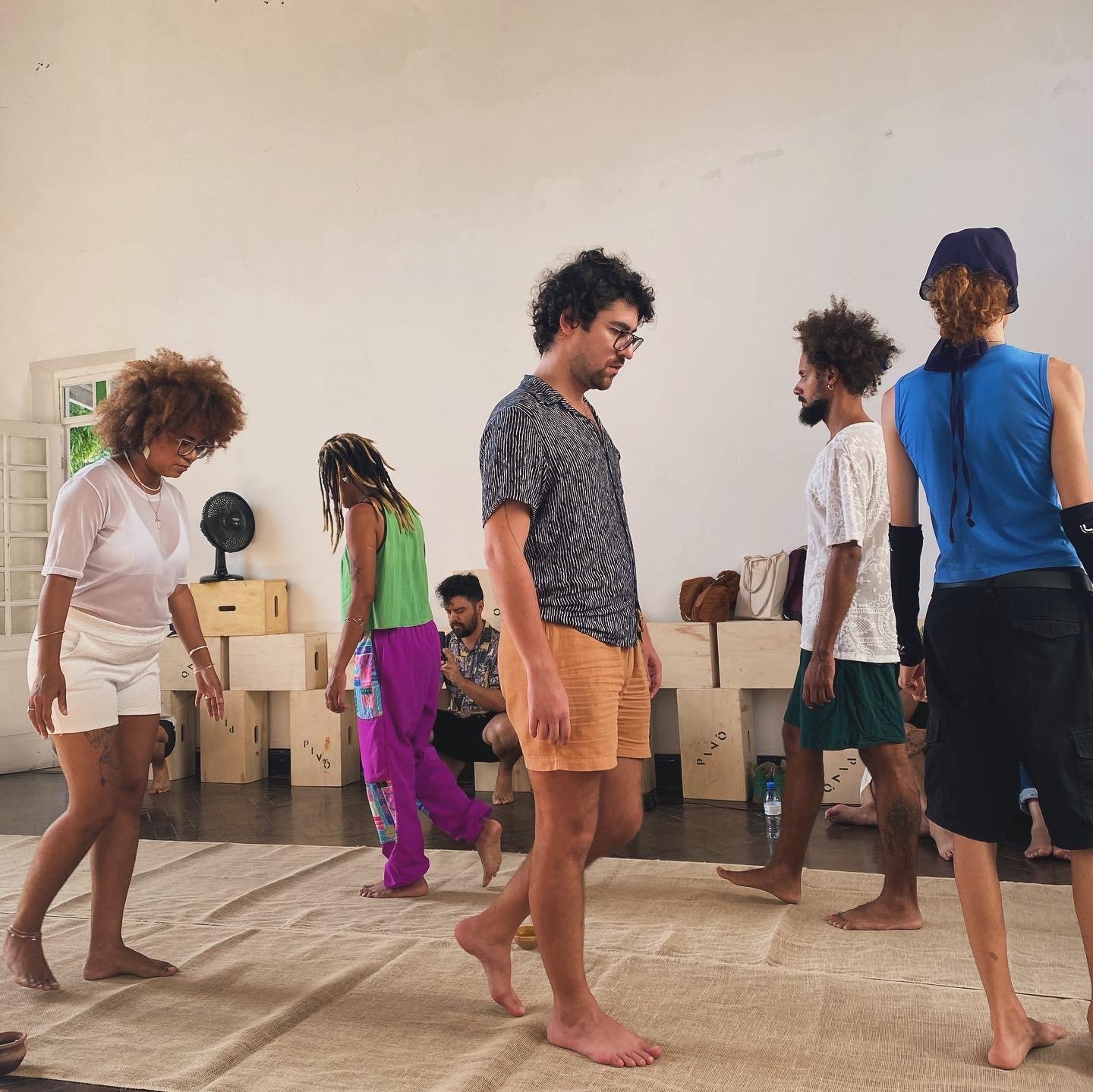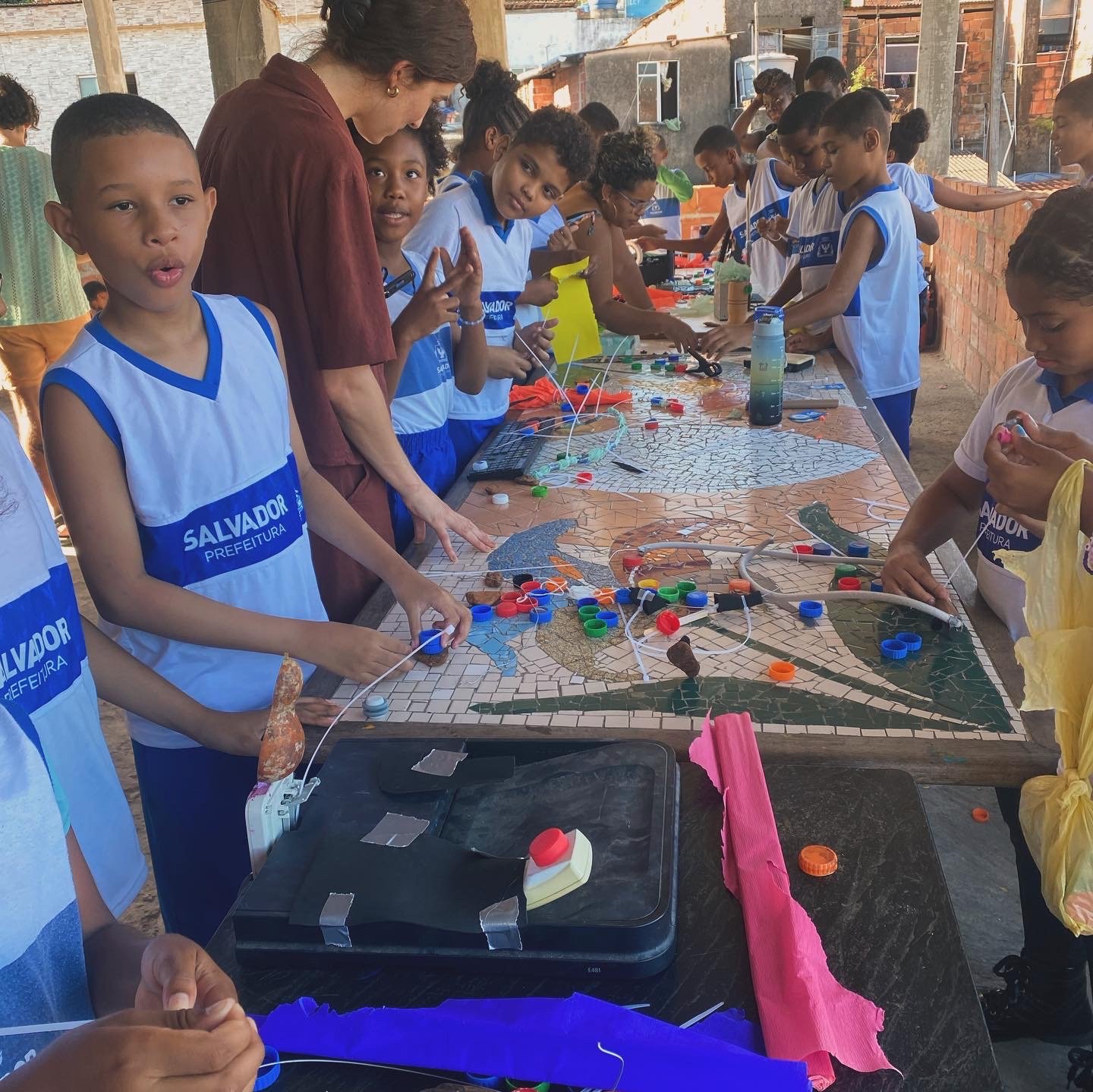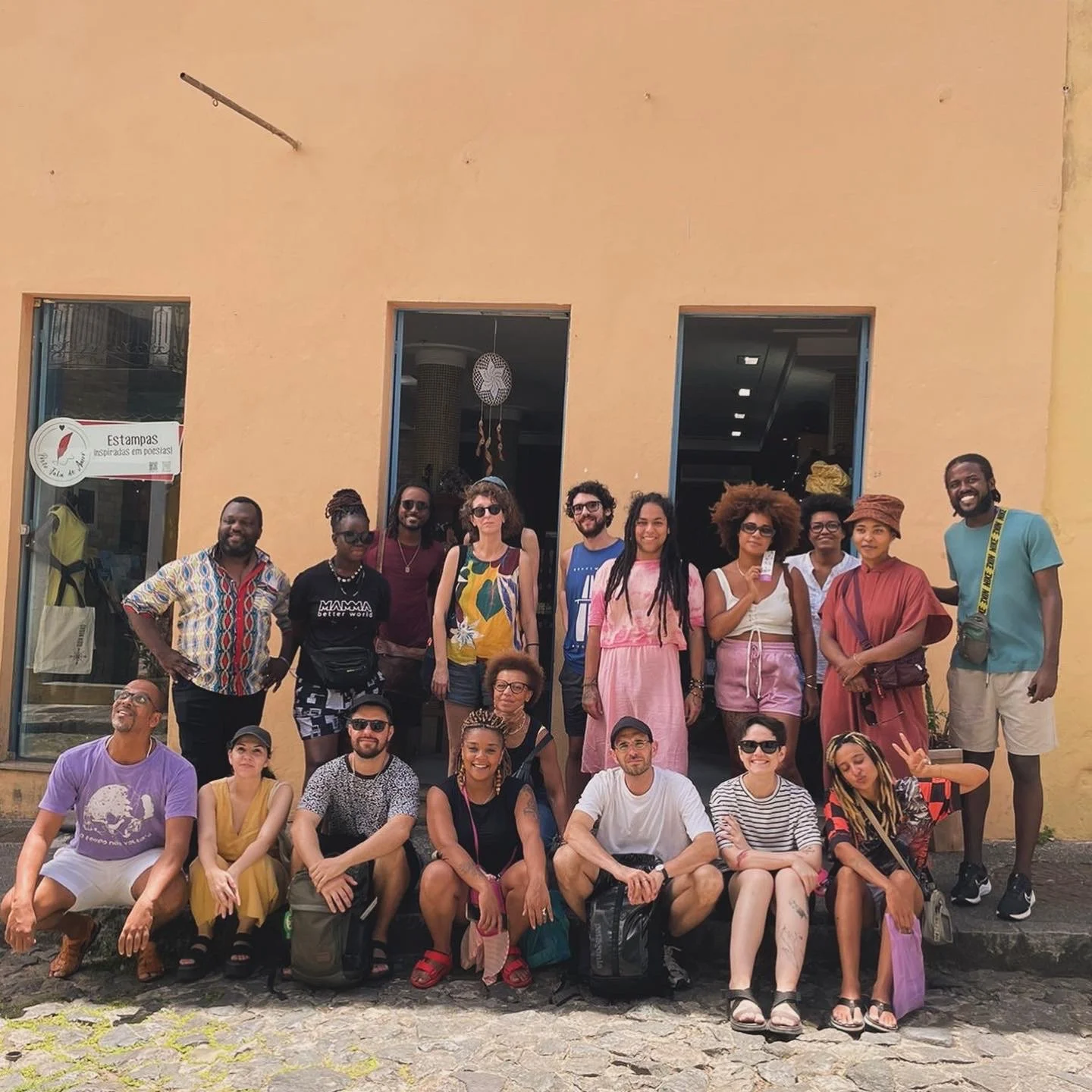South-to-South: A Meeting on African and Afro-Diasporic Technologies
South-to-South: A Meeting on African and Afro-Diasporic Technologies
The South-to-south: A meeting on African and Afro-diasporic Technologies gathers a small group of artists, thinkers, and community organizers, with the aim of thinking about and sharing different branches of technology, art, and local cosmologies. The meeting will be dedicated to better comprehending how African cosmologies and the recuperation of millenarian land-based practices are critical for developing alternative definitions of the technological.
During the South-to-South meeting, invited contributors offer talks, walks, and cooking sessions to delineate particular approaches to technological thinking and its relationship to situated knowledge. The point of the meeting is to share knowledge across transnational borders, and to uplift and nourish perspectives of diverse practitioners from the global south. The transdisciplinary research program rehearses Martinican artist René Louise’s “Manifiesto del Cimarronismo Moderno.”1 Published in 1991, this manifesto proposed to build a decolonial future based on the resistance against and disavowal of colonial and western modes of existence by reclaiming ideas of technological thinking that underscore forms of coexistence and resilience. For Louise, one such idea was Maroonism, which not only constituted a practice of anti-colonial defiance, but also an aesthetic project benefiting both the “quotidian and the future.” In Louise’s thinking, maroonism as a modern technology could take the form of robotics, cybernetics, or biotechnology, in a way that would recuperate the “achievements and traditions of our ancestors.” With this provocation, the South-to-South program focuses on joining forces with fellow makers and institutions seeking to pluralize the definitions of the technological by acknowledging local systems of knowledge production.
In 2023, the group was hosted by Pivô Art’s new residency in Bahia de Salvador. In July 2024, the group will re-convene at Centre d’art Waza in Lubumbashi to give continuity to the technological provocations but this time with the historical and territorial context of the Democratic Republic of the Congo in mind. The program is made possible thanks to the support of 99 Questions at the Humboldt Forum in Berlin.
